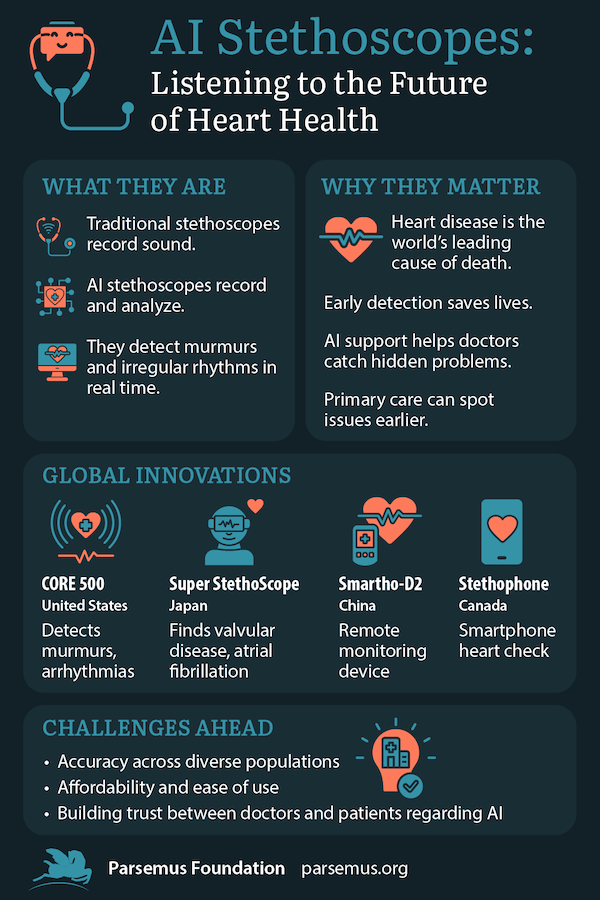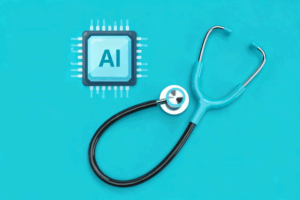The familiar stethoscope has been in doctors’ hands for more than 200 years, but technology is changing it. A new generation of stethoscopes using artificial intelligence (AI) can do more than capture sounds. They can analyze them, highlight problems, and help clinicians detect heart disease earlier.
Artificial intelligence is the ability of a digital computer or computer-controlled robot to perform tasks commonly associated with intelligent beings. [source: Brittanica.com]
AI listening in real time
In August 2025, a BBC News story reported on the CORE 500, made by U.S. company Eko Health. Researchers studied the device across multiple hospitals. The AI stethoscope successfully detected several types of heart murmurs and irregular rhythms. In many cases, it performed as well as — or better than — expert cardiologists.
This real-time listening and analysis matters. Heart disease often develops silently. A slight murmur or irregular beat might be the first warning. Traditional stethoscopes rely on the clinician’s training and focus. AI stethoscopes add another layer of precision. They can flag subtle problems instantly, ensuring patients get the proper tests and treatment.
Eko CORE 500 Digital Stethoscope with heart disease detection AI
Building trust in the use of AI in the clinic
A March 2025 article in the Netherlands Heart Journal by early users of the CORE 500 explored its uses. The authors highlighted several benefits. Clinicians could confirm findings on the spot, reducing delays. Primary care providers without specialized training may be able to catch problems earlier. The device could also serve as a teaching tool for medical students.
The paper also noted that trust is essential. Doctors and patients need confidence that AI is accurate and unbiased. Transparent reporting, strong clinical trials, and independent testing will help build that trust.
Global innovation in AI stethoscopes
The United States is not the only country developing this technology:
- In Japan, researchers at Acute Medical Innovation created the “Super StethoScope.” A study published in the Journal of Cardiology in April 2024 showed promising results. The AI stethoscope helped detect valvular heart disease and atrial fibrillation. Its performance was strong across patients of different ages.
- China-based MinttiHealth has taken a different path. Their Smartho-D2 is an electronic stethoscope designed for both clinical and home use. It records heart and lung sounds, transmits them remotely, and allows AI analysis. Doctors can monitor patients remotely, which could be particularly valuable in rural areas.
- Canadian startup Sparrow BioAcoustics is moving AI stethoscopes to smartphones. Their Stethophone app allows users to record chest sounds using a phone’s microphone. AI then analyzes the recordings. While not a replacement for medical exams, it demonstrates how digital tools can empower individuals to monitor their own heart health.
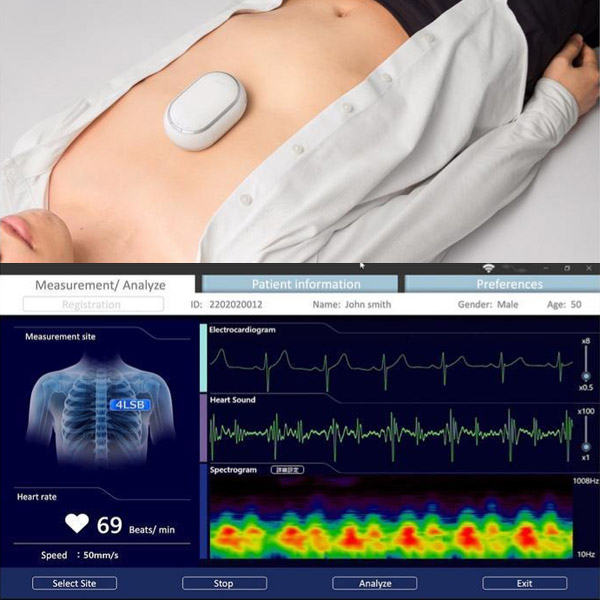
Super StethoScope by Acute Medical Innovation
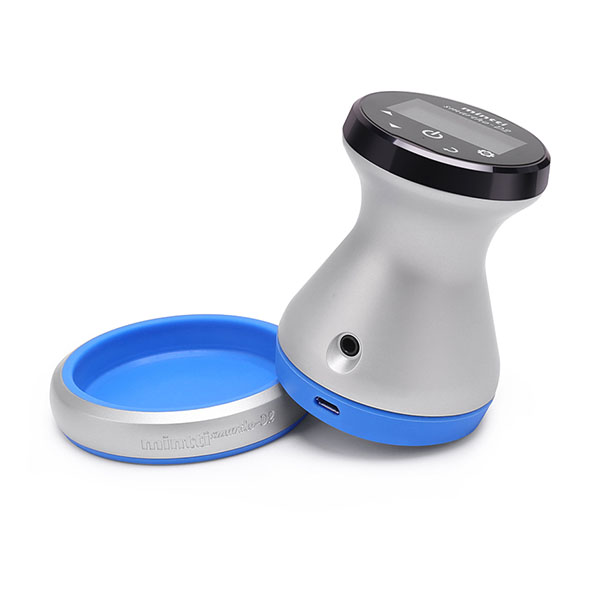
Smartho-D2 by Mintti Health
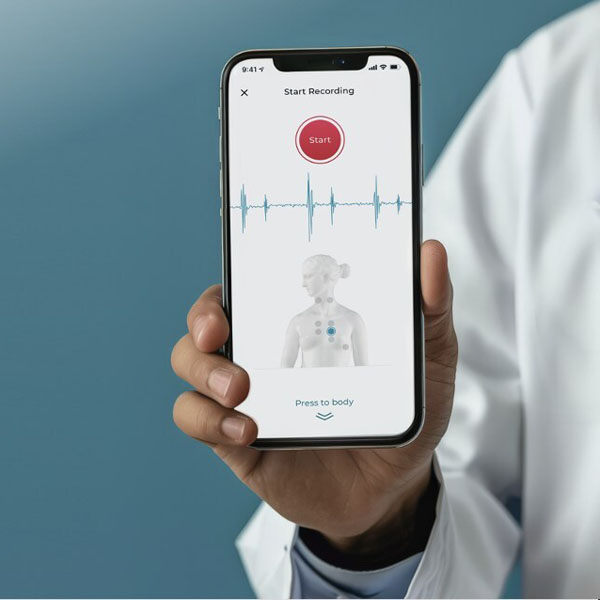
Stethophone by Sparrow Bioacoustics
Why this matters
Heart disease remains the world’s leading cause of death. Early detection can save lives. AI stethoscopes could make expert-level screening available in primary care clinics, rural hospitals, and even at home. They may also help reduce health disparities by giving more patients access to high-quality evaluation. According to this review of modern stethoscopes, digital models can also enable clinicians with hearing loss to make diagnoses.
But challenges remain. AI must be carefully tested across diverse populations. Devices must be affordable and easy to use. And doctors must understand when to trust AI and when to seek further confirmation.
Other ways artificial intelligence is transforming health care
Artificial intelligence is reshaping medicine far beyond stethoscopes. Here are a few examples:
- One promising frontier is the use of digital twins — computer-generated models of organs that simulate thousands of diverse patients. Drug companies like Sanofi are using them to speed up drug discovery, cut costs, and reduce dependence on animal testing.
- AI is also protecting vision. Tools such as Retmarker and EyeArt can quickly analyze eye images for signs of diabetic retinopathy, a leading cause of blindness. By filtering cases for human review, these systems could make screening more cost-effective and accessible worldwide.
- In labs, researchers are combining nanotechnology and AI to develop blood tests that may detect ovarian cancer and other diseases years earlier. Similar systems already identify infections like pneumonia within hours, guiding life-saving treatment.
- AI is accelerating drug discovery itself. Companies like Insilico Medicine and Recursion are designing new molecules in months rather than years. Others, like Every Cure, utilize AI to discover new applications for existing drugs, offering hope for rare and neglected diseases.
- Even routine care is changing. Physicians now use AI transcription and cancer-spotting tools to ease workloads and catch disease earlier. However, research suggests that dependence on AI tools may erode doctors’ own skills.
Looking ahead
The Parsemus Foundation will continue to follow advances like AI stethoscopes. Sharing knowledge about these tools supports our goal of giving people evidence-based information about innovations in health care.
See our other news articles about heart health.
